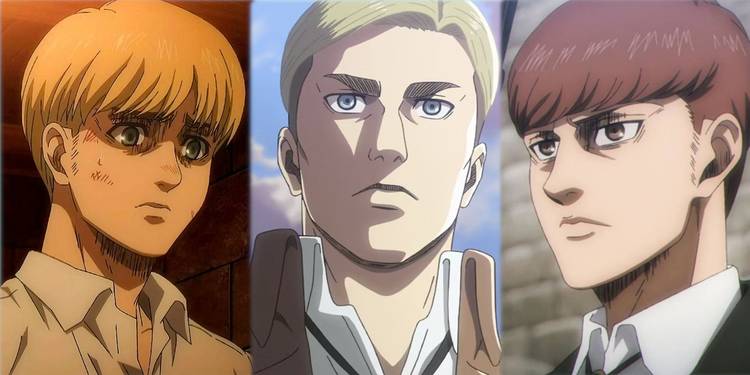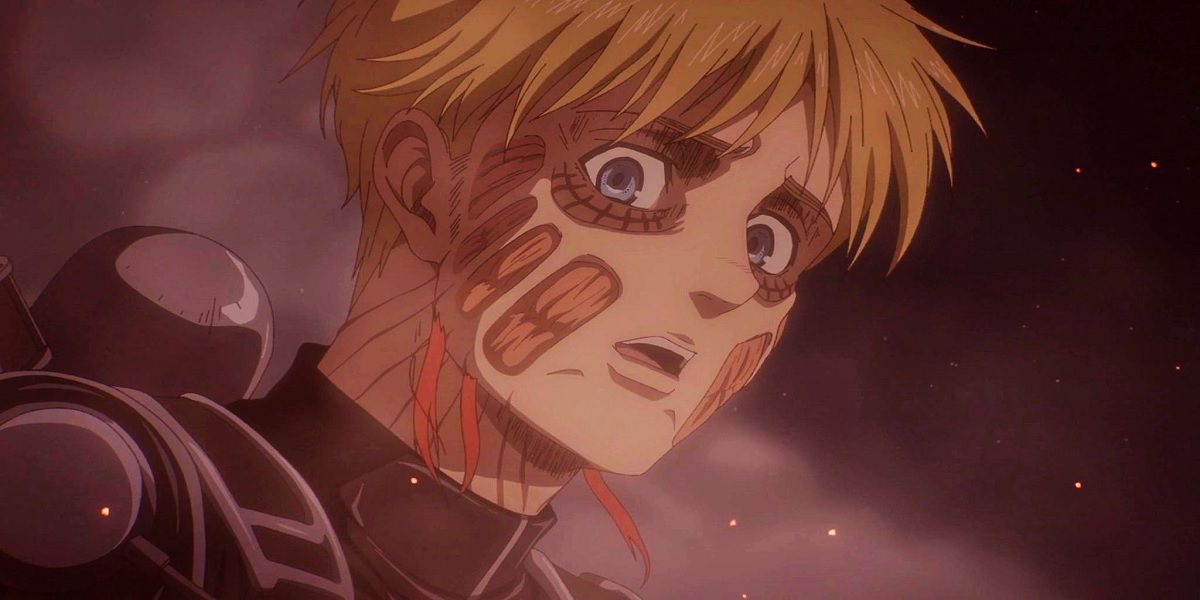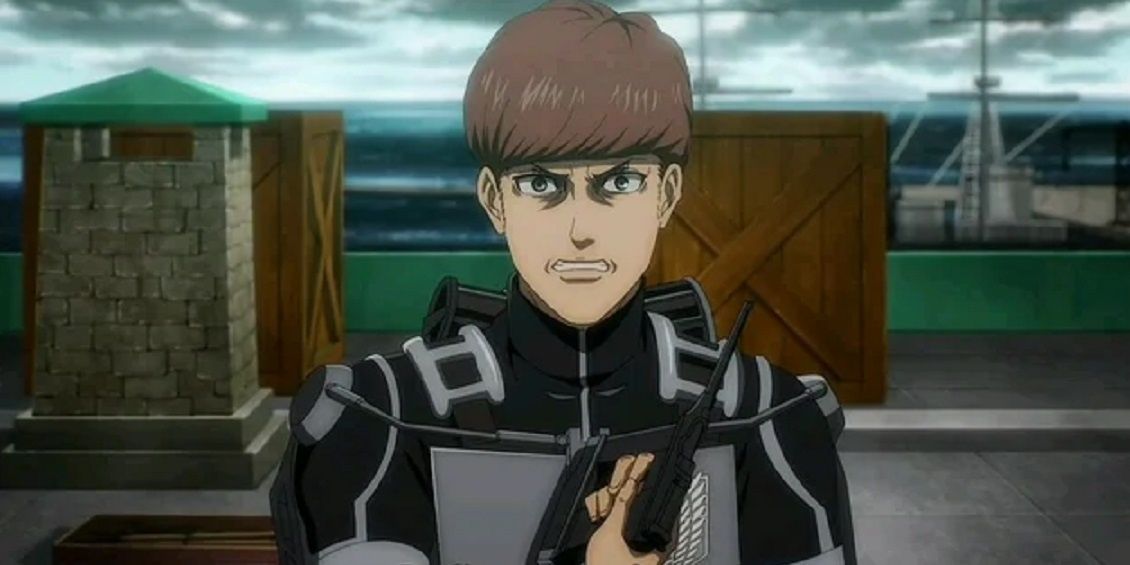Hajime Isayama’s Attack on Titan brought the horrors of war to the screen and balanced the ambiguity of morality on a fine string. Through a variety of character perspectives, the audience were torn between establishing a good and evil because there was no such position in the world of Attack on Titan. The characters felt they were doing what was right and necessary to bring about the future they believed to be the best for them and their people.
Two characters in particular had practically opposing ideologies for the latter half of the series, but the catalyst for their growth was the same: Erwin Smith’s death. The unsuspecting secondary recruit Floch Forster took part in Erwin’s suicide charge against the Beast Titan, witnessing his final speech and command. Armin Arlert was given the spinal fluid in place of a near-death Erwin, consuming Bertolt Hoover and gaining the powers of the Colossal Titan — a decision that was questioned by the Paradis Military. Armin, with his strategic mind and dedication to the future, was considered the best candidate to replace Erwin while Floch had survived by chance. However, as the story progressed into the “Marley Arc” and beyond, it became clear their roles had reversed.
Armin Grew Hesitant After Gaining the Colossal Titan’s Power
Up until the point when Armin consumed Bertolt, he had been the Scout Regiment’s forward-thinking and tactically inclined trump card. He saw the world in a manner others did not realize and took on the role of the deceiver and manipulator to gain an advantage in the battlefield. Armin’s ability to read others was considered sublime and his understanding of ideas to profoundly progress a scenario repeatedly came into play. Yet once he gained the power of the Colossal Titan, there was a shift in his personality. It is implied that the effect of Bertolt’s memory somewhat influenced Armin’s decision-making, having him relate with the enemy on a level that restricted his ability to make the tougher decisions.
Armin’s relationship with Annie Leonhart, while not completely sourced from Bertolt’s memory, likely allowed Armin to understand her position on a deeper level. His routine visits to her crystallized state and one-sided conversations for her behalf strengthened a bond he had with her, enhanced by the memory of the former Marleyan Warrior. However, it was not only the influence of Bertolt’s feelings that shaped Armin’s worldview.
Due to the sudden increase in destructive capabilities Armin now possessed, he was able to see the true devastation he could inflict on his enemy — and such a power became a shackle. The flickering idea of hope and peace became his end game; because of his power he became absent from the field, afraid of what he was capable of should the situation leave no other option. Armin was a living nuclear weapon who dreamed of a peaceful society. Floch, on the other hand, embraced war.
Floch Fought to Live Up to Erwin Smith’s Legacy
Where Armin failed to live up to Erwin’s legacy in Attack on Titan, Floch looked to install part of Erwin in himself in an attempt to rebirth the Devil in Eren Yeager. The spirit of Erwin was split between the two men, and while Armin’s dreams and brilliant mind wavered under the weight of the responsibility, Floch’s inherent ability to do whatever it took to succeed and need for the survival of the Eldians flourished.
Floch evolved beyond the others’ expectations and became an influential powerhouse of Paradis, incorporating the final words of Erwin Smith into his ideology — not to die a meaningless death. Plagued by survivors guilt, Floch dedicated his heart and life to the cause he believed to be the only way for his people’s survival, ensuring his death would be meaningful. Even if his actions could be considered immoral, Floch progressed the future of the island to the point of his plan being recognized by Hange Zoë as the right course of action — even if they could not accept the genocide.
Armin ultimately failed Erwin’s memory and became nothing more than an observer of a changing world, refusing to directly influence it until it was too late. Floch took everything he learned from Erwin and Eren and proactively guaranteed everything occurred as it needed to: establishing a revolt, overthrowing the military and ensuring the beginning of Eren’s Rumbling. The dreams of Armin’s peaceful future were left in the dust and consequently, Floch was able to revive what he perceived to be the heart of Erwin in himself. It was no longer a battle of ideology — it was action against inaction.


